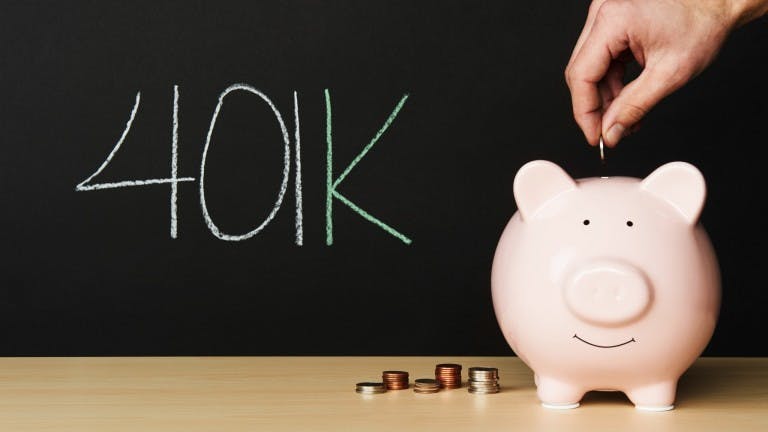What is a 401(k) and why is it important?
By taking advantage of this benefit, you’re making an investment in your future and saving enough to be financially secure in your retirement years.

You've recently landed a job that offers a variety of benefits: paid time off, health insurance, flexible schedules, volunteer opportunities, and team-building events. You notice a 401(k) match program on the list, but what does that mean for you?
A 401(k) is one of the most powerful ways to maximize your income and keep your money growing. By taking advantage of this benefit, you're investing in your future and saving enough to be financially secure in your retirement years.
If you're not too familiar with how a 401(k) works, or you just started a job that offers a 401(k) match program, we've answered a few questions to help you get moving toward saving for retirement:
What is a 401(k)?
A 401(k) is an employer-sponsored savings plan where employees can invest part of their paycheck into their retirement savings. You can automatically select a percentage of your paycheck or set a dollar amount to contribute.
What is a 401(k) match program?
Your employer offers a 401(k) match based on the amount you individually contribute to your 401(k). Every dollar you save can be matched entirely or partially, depending on your employer's benefits.
What are the benefits of a 401(k)?
If your employer has a 401(k) match program, they are essentially giving free money to help you build compound interest and grow your retirement savings faster.
Your 401(k) contributions are excluded from your taxable income and aren't taxed until money is withdrawn or distributed.
You're paying yourself first, ramping up your savings, and setting aside money for your future.
How do contributions work?
Let's say your gross salary is $50,000. If you put 6 percent of your $50,000 salary into your 401(k), you'll contribute $3,000 annually. If your employer offers a match program, in this case matching your 6 percent contribution, an additional $3,000 will be deposited to your 401(k). That adds up to a $6,000 tax-free contribution toward your retirement.
$50,000 Salary
You | Employer | |
|---|---|---|
Annual Contribution | $3,000 (6%) | $3,000 (6%) |
Total Combined Contribution | $6,000 |
*Example is for illustrative purposes only. Your actual contribution and any employer-match contribution will vary.
When can I start contributing to my 401(k)?
While some employers offer a 401(k) program immediately, other employers wait to provide this benefit after 90 days or one year. Before contributing to your 401(k), we recommend having $1,000 in emergency savings and paying off all your debt. Once you've achieved these milestones and your 401(k) eligibility date is determined, we recommend speaking with your manager or the department that manages your employer's benefits to learn more about participating in a 401(k) program.
What is the maximum 401(k) contribution limit?
Another factor to be aware of as you're saving early and often is your contribution limits for your 401(k) program is that the IRS sets a maximum contribution limit each year. Once you reach the maximum limit, you and your employer cannot make 401(k) contributions past the maximum threshold.
Do you know how much you should save for retirement? Before you begin your 401(k) contribution, get a precise picture of how much retirement savings you need for with our free Retirement Calculator.
It takes time to see the long-term benefits of your contributions, but the results of your hard work and dedication to saving will be worth it!